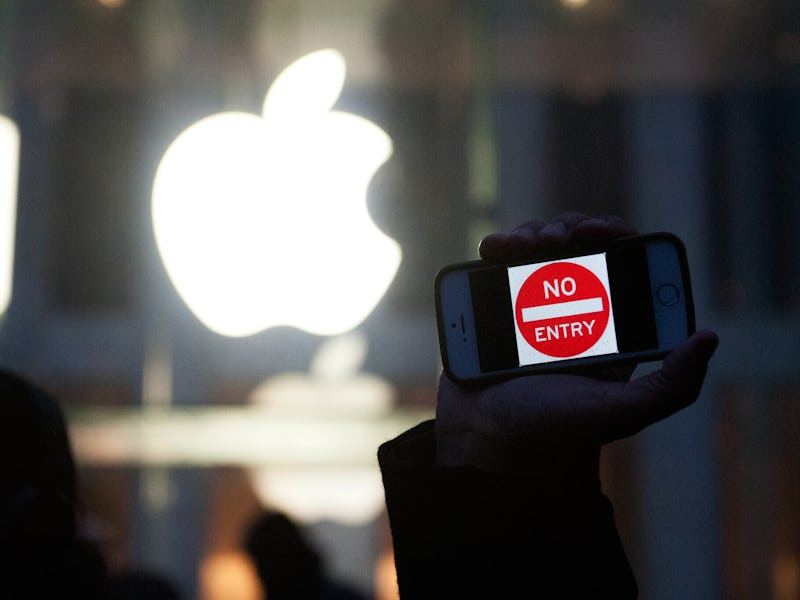Apple is Involved in a New Court Case About Unlocking an iPhone
The San Bernardino case isn’t the only time Apple fought for encryption.

Apple is involved in another court case about unlocking an iPhone.
After the company refused to unlock the iPhone of a potential Columbia Point Dawgs gang member — dubbed “largest, most violent and most feared organization in Boston,” by U.S. attorney Carmen M. Ortiz — FBI agent Matthew Knight made the request to Apple on February 1. He said that the phone may contain information on others associated with the gang, drug customers, drive-by shooting plans, and gun and drug trafficking activities, reported the Boston Globe.
This marks the third high-profile case this year wherein law enforcement has asked Apple to cooperate and crack an iPhone. The biggest instance — the case in San Bernardino — has its next hearing on March 22. An iPhone involved in a drug prosecution case last fall in New York seemed to launch the war for precedent. While it appears the same argument runs throughout all three cases, there are differences between each.
The relevant iPhone privacy setting.
To review: Apple’s refusal puts government investigations at a stalemate because iPhones that run on iOS 9 are protected by a master passcode that, when incorrectly entered more than 10 times, will prompt the phone to erase its data. This is why Apple has been brought to court for in all three cases.
In the New York case, the defendant pled guilty to the charges, but the government still wanted access, with Apple’s assistance, to the defendant’s iPhone 5S, believing the information would help further the investigation. On February 29, the judge in the case, James Orenstein, denied the government’s request. But the government intends to appeal Orenstein’s ruling.
The government used the All Writs Act during the 2015 case, which essentially states that the government can use all necessary or appropriate means to further the investigation — since there are no other laws in place on the issue. Judge Sheri Pym, who is evaluating the San Bernardino case, is ordering that Apple cooperate under the very same act that was presented in New York.
However, the iPhone 5C under question in San Bernardino was a work phone given to one of the shooters, Syed Farook, by the county’s department of health. The iPhones in both the Boston and New York cases were personal devices. The two shooters physically destroyed their personal cellphones beyond information recovery, and removed a hard drive from their computer, which the FBI has yet to locate. Farook was not carrying his county-owned phone during the attack, and investigators aren’t certain if the shooters forgot to destroy the phones or used them to coordinate the attack.